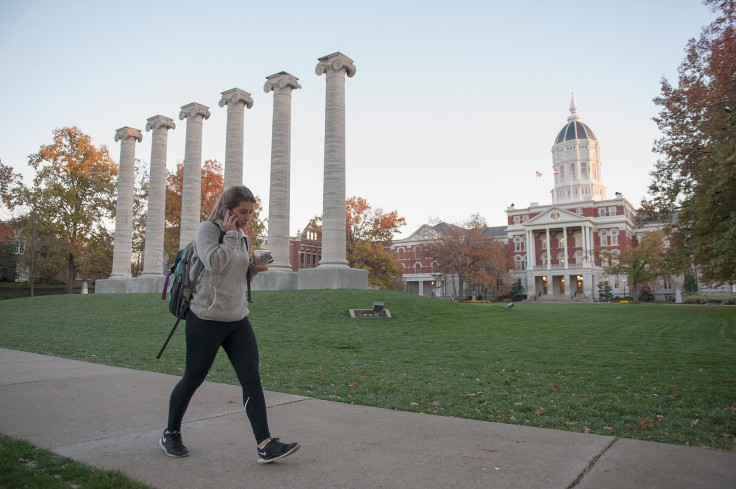College Corruption: University Of Missouri Pays Administrators $2 Million In 'Hidden' Bonuses

More than a year after the University of Missouri System President Tim Wolfe was ousted after a semester of protests, it was revealed that he had received more than $100,000 in inappropriate payments. And he wasn't the only one. In total, the university doled out more than $2 million of hidden payments to administrators over the past three years.
That’s according to a report released Monday by Missouri State Auditor Nicole Galloway. All in all, the university paid its administrators about $2.3 million in a manner that was concealed from the public. About $1.2 million of that total came in the form of incentives, given to administrators without being tied to specific criteria. The rest, more than $1 million, was given in the form of luxury vehicle allowances and retention bonuses.
Another top administrator who resigned during the protests in November 2015 — R. Bowen Loftin, former chancellor of the Columbia campus — was given about half a million dollars after he resigned, although he had “no work responsibilities or work product due,” the report said.
Loftin continued to receive his chancellor’s salary for six months after he resigned, and he was allowed to keep additional compensation. That compensation included a $100,000 retention bonus, an annual luxury vehicle allowance, a $35,000 stipend and a $50,000 travel budget. In June 2016, he began receiving a salary for his new position as the director of a research center at the university.
Read: University Of Missouri Anti-Semitic Vandalism: Officials Investigating ‘Hitler Rules’ Message In Dorm
In a statement, University of Missouri spokesman John Fougere argued that the university did nothing wrong: “The program includes incentives that are used among peer higher education institutions, and generally do not exceed the median of the market. Under the UM System’s executive compensation program, executive leaders earn a portion of their annual salary based strictly on performance.”
But three recently appointed members of the university’s Board of Curators condemned the practices.
“This audit revealed some disturbing things,” Daryl Chatman, an attorney and former Mizzou football player, told the St. Louis Post-Dispatch. “We do know something is broken.”
The report was published one month after Missouri’s new Gov. Eric Greitens (R) proposed cutting the state’s higher education budget by $40 million.
© Copyright IBTimes 2025. All rights reserved.






















